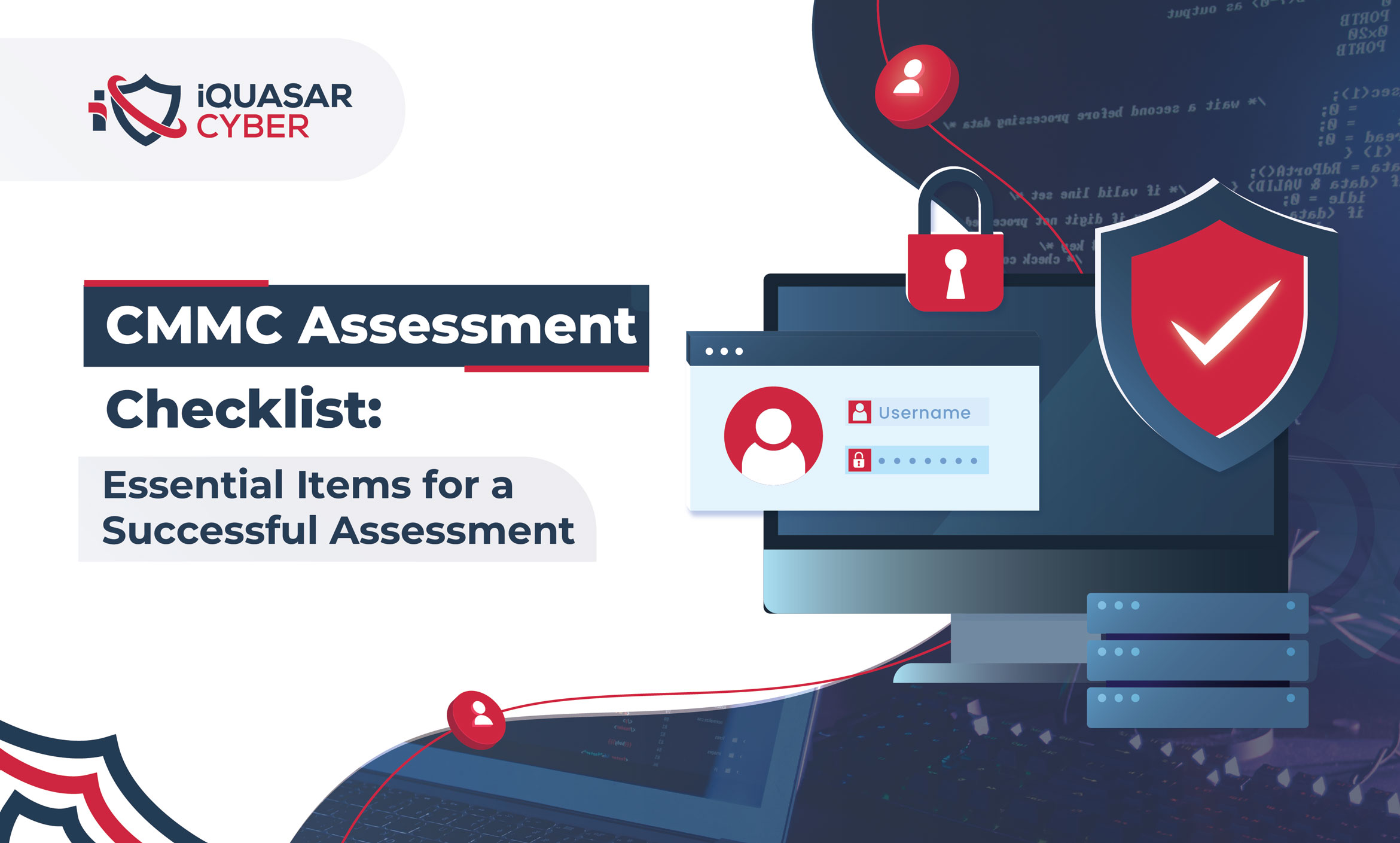The Cybersecurity Maturity Model Certification (CMMC) is a crucial requirement for defense contractors, ensuring they possess the necessary cybersecurity controls to protect sensitive government information. To navigate the CMMC assessment process effectively, organizations need a comprehensive checklist to guide their preparation. This blog will outline the CMMC audit checklist items to include in your CMMC preparation for a successful outcome.
-
Define Information Security Requirements:
- Identify data types: Begin by understanding the types of controlled unclassified information (CUI), federal contract information (FCI), or covered defense information (CDI) your organization handles. This classification determines the CMMC level you need to achieve.
- Pinpoint relevant controls: Align your cybersecurity controls with the NIST SP 800-171 or NIST SP 800-172 security requirements, depending on your CMMC level.
-
Conduct a Self-Assessment:
- Evaluate current state: Conduct a thorough self-assessment to gauge your organization’s existing cybersecurity posture against the identified CMMC requirements. This self-assessment helps identify gaps and areas needing improvement.
- Utilize resources: Leverage CMMC readiness resources provided by the CMMC Accreditation Body (CMMC-AB) to guide your self-assessment.
-
Document Everything:
- Maintain detailed records: Create and maintain detailed documentation of your cybersecurity policies, procedures, and processes. This documentation serves as evidence of your compliance efforts during the assessment.
- Develop key documents: Prepare essential documents like your System Security Plan (SSP) and Plan of Actions & Milestones (POA&M). The SSP outlines your security strategy, while the POA&M details your plan for addressing any identified gaps. Add completion dates to all your POA&M and focus on completing them.
-
Implement and Monitor Controls:
- Enforce cybersecurity controls: Implement the identified cybersecurity controls across your organization’s systems, networks, and personnel.
- Continuously monitor: Regularly monitor and test the effectiveness of your implemented controls to ensure they function as intended and address evolving threats.
-
Address Identified Gaps:
- Close the gap: Based on your self-assessment and potential findings from a pre-assessment, develop and implement corrective actions to address any identified gaps in your cybersecurity posture.
- Update documentation: Reflect on your implemented corrective actions and improvements in your relevant documentation, including your POA&M.
-
Employee Training and Awareness
- Cybersecurity Training: Regularly training employees on cybersecurity best practices and protecting CUI.
- Role-based Training: Offer additional, role-specific training for individuals with direct access to CUI.
Remember:
- Seek professional guidance: Consider seeking assistance from a CMMC Registered Provider Organization (RPO) or a Certified CMMC professional (C3PAO) for expert guidance and support throughout the CMMC compliance journey.
- Stay updated: The CMMC ecosystem is evolving. Proactively stay updated on the latest CMMC developments and requirements to ensure your organization remains compliant.
Following these CMMC audit checklist items and maintaining a proactive approach can significantly increase your chances of a successful CMMC C3PAO assessment with a high score and ensure the continued protection of sensitive government information entrusted to your organization. Navigating the CMMC compliance journey can be complex, but achieving certification becomes achievable with the right preparation and guidance.
As a Cyber-AB Registered Practitioner Organization (RPO), our team of experts boasts extensive knowledge of CMMC, NIST 800-171 regulations, FedRAMP, NYDFS, HIPAA, PCI, and more. We specialize in helping organizations like yours prepare for CMMC compliance, providing self and external assessment recommendations. We are committed to helping your organization achieve and maintain CMMC compliance, safeguarding sensitive information, and ensuring your continued success within the defense industrial base.
